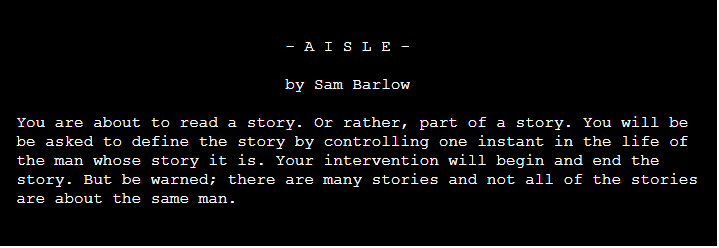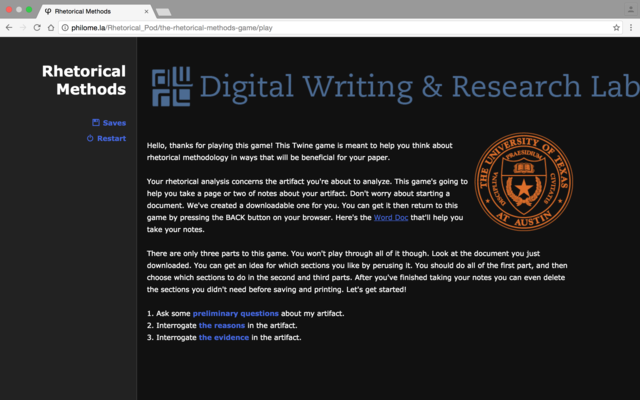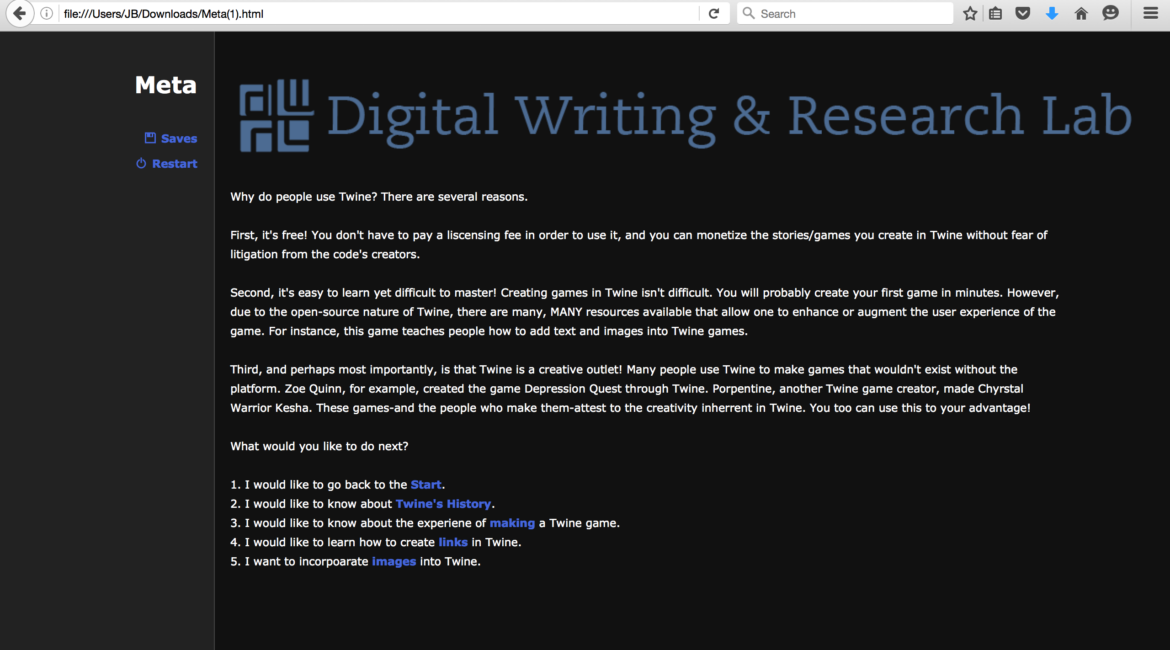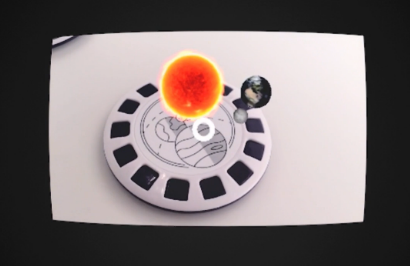Martha Karnes is also an author of this proposal. In Persuasive Games, Ian Bogost (2007) defines serious games as “videogames created to support the existing and established interests of political, corporate, and social institutions” (57). Because there is no more “serious” arena than health and medicine, to consider this question we...
Lesson Plan: Teaching Research with Sam Barlow’s Her Story
Usually when video games appear in the college classroom, they are objects of analysis. We critique them as if they were a book or a movie. But, in teaching their content, we rob them of their pedagogic potency. Games facilitate play, and by offering teachers new and unfamiliar decision spaces,...
Tinkering With Pedagogy: Experimenting With Technology at the DWRL
At the start of last academic year, the Digital Writing and Research Lab assigned two research imperatives: data visualization and wearable technology. While data visualization is ubiquitous in most forms of media, and serves an already established and crucial role in empirical research and its dissemination, the affective affordances of...
Speaker Event Recap: Professor Patrick Jagoda
The Digital Writing and Research Lab’s speaker series consistently brings talented scholars working at the intersections of rhetoric, technology studies, and digital humanities, to the University of Texas to present their research. In February of 2017, The DWRL hosted Patrick Jagoda, associate professor at the University of Chicago. Dr. Jagoda...
Play
[cs_content][cs_section parallax="false" separator_top_type="none" separator_top_height="50px" separator_top_angle_point="50" separator_bottom_type="none" separator_bottom_height="50px" separator_bottom_angle_point="50" style="margin: 0px;padding: 45px 0px;"][cs_row inner_container="true" marginless_columns="false" style="margin: 0px auto;padding: 0px;"][cs_column fade="false" fade_animation="in" fade_animation_offset="45px" fade_duration="750" type="1/1" style="padding: 0px;"][cs_text]Throughout the long history of the lab, play has been one of our central recurring areas of interest. In the lab's current manifestation our focus has...
Questing for Choice(s)
There is a fundamental issue with how we (as academics, players, and creators) view game narratives. This particular art form leaves room for player intervention, for changes and transformations, however, such interactivity has done little to push the boundaries of storytelling beyond alternate endings and perpetual quests. Is this as...
Cool Tools: The Rhetorical Methods Twine Game
Following the success of last year's Twine research group, we in the DWRL wanted to take a step toward making Twine an integral part of the classroom. So during the break I set myself a goal: I wanted to write a completely new kind of Twine game. The resulting text, a...
Twine: The Meta Game
Team Twine was busy in the spring. Kendall, Lily, and I have been hard at work making some wonderful stuff for the DWRL. To help us along, we've read books and articles, held meetings and brainstorming sessions, developed our own materials and shared them with each other, facilitated Game Jams...
The New View-Master Takes on Augmented Reality; Should We Take it Into the Classroom?
We are, as others have pointed out, in the age of augmented reality. Whereas the twentieth century saw virtual reality develop in leaps and bounds, it is augmented reality that reigns supreme in the 2000s. Case in point: the View-Master. (more…)
Digital Pedagogy Showcase: Twine Games in the Writing Classroom
At the Spring Digital Pedagogy Showcase, the DWRL's Twine Game Research Group shared resources and ideas for incorporating Twine—a textual, nonlinear, game-making program—into a basic writing curriculum. (more…)








